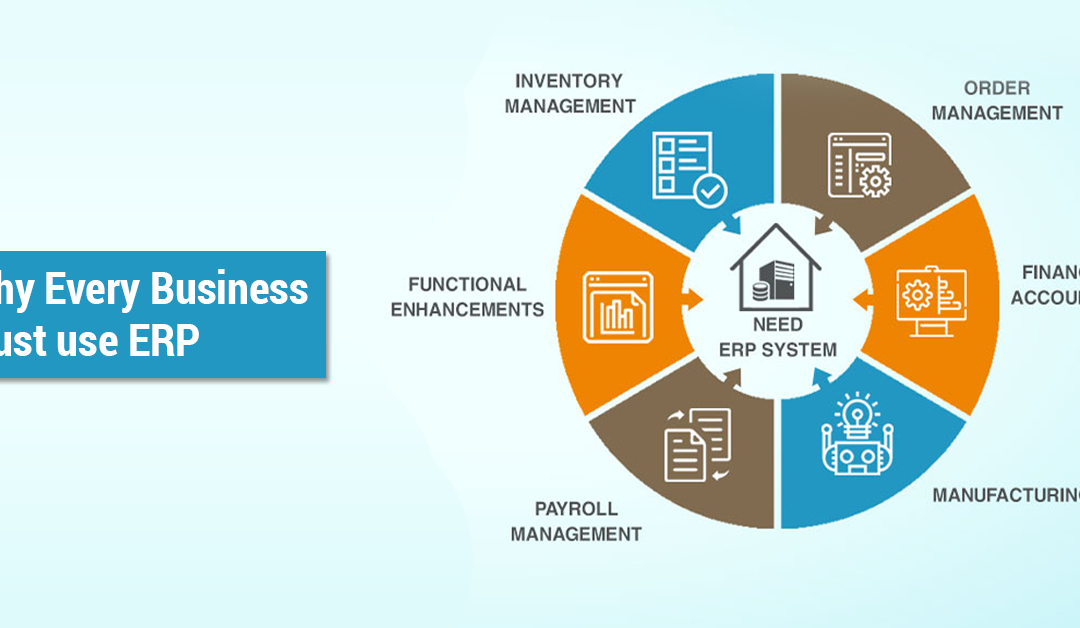Every business has its objectives, processes, and requirements. It is the requirement of today’s business to have technologies with complete functions which can bridge the gap between business processes and people. ERP system gives a helping hand by synchronizing all information and communication. This makes it simple to run a large organization with multiple departments and teams successfully. An ERP is a combination of software and the company’s activities performed to manage operations. The entire project value chain is aligned and critical processes are streamlined effectively with ERP software.
Why Do You Need an ERP System?
The importance of the ERP comes in a role when your business starts lacking proper communications, or when you know you are giving more time in paperwork than in actually running the business, then ERP system is the solution for you. You need to set up various workflows and methods (automated & manual) which may or may not be documented formally. Implementation of ERP system within an organization changes the way people work. It is important that the top management practically explain the reasons for implementation and how the business as a whole will benefit if it is adopted deeply by the organization staff. Let’s discuss the justifications for implementing an ERP system.
let’s Look at every reason one by one.
-
Functional Enhancement
As a small business, generating leads & managing contacts and cross. So, using an ERP a business not only helps to enhance the function but also conduct lead acquisition. It also makes easy to manage contact and makes it more effective and seamless.
-
Inventory management
ERM system cuts down the pressure of Inventory management. It allows the easy way of supervision of non-capitalized assets. It helps manage the flow of goods from manufacturers to warehouses and from these facilities to point of sale.
-
Order Management
The ERP software helps to improve management of the order and further make it easier. This software can take note of the order and easily analyze them without the hassle of paperwork, emails, and spreadsheets. ERP has improved and enhanced ordering capabilities. With the help of ERP, your organization can easily respond to complicated order requests.
-
Financial Accounting
Financial accounting module of an ERP allows controlling and integration of financial information. This module is best to centrally track financial accounting data within a framework of multiple companies.
-
Payroll Management
This ERM module supports a variety of special functions. It helps right from calculating payroll checks with individual deductions to maintaining the information about an account. ERP system also streamlines your payroll process, improves productivity and simplifies administration.
-
Functional Management
ERP software is made of several functional modules. Each ERP module affects a specific functional area of an organization. Some of the main functional modules of ERP software solutions are Finance, Marketing and Sales, Human Resources, Inventory Control, Material Purchasing, Order Tracking, and Production Planning.
-
Manufacturing
Operations management is the heart of a manufacturer. Products must be made that work for the customers and meet their needs. The feature in ERP ensures that those products must be ready based by scheduled time so they arrive when the customer wants a delivery.
Conclusion:
ERP is the solution to take your business to the next level by. ERP is the most efficient approach to organized way of working. It will help you integrate your sales, marketing, and support needs. PC Soft is one of the leading ERP solution providers. The ERP System developed at PC soft is totally customizable as per the clients requirement. So keep your traditional way of working aside and go with the new generation’s solution.



